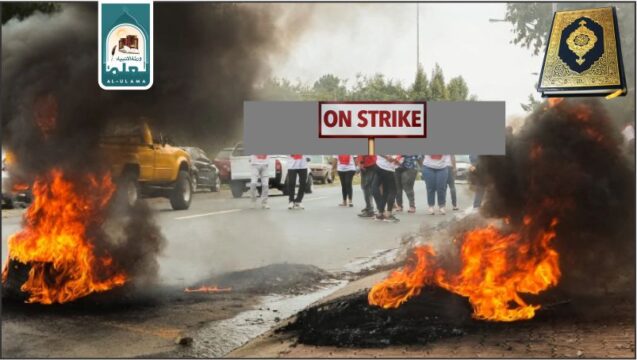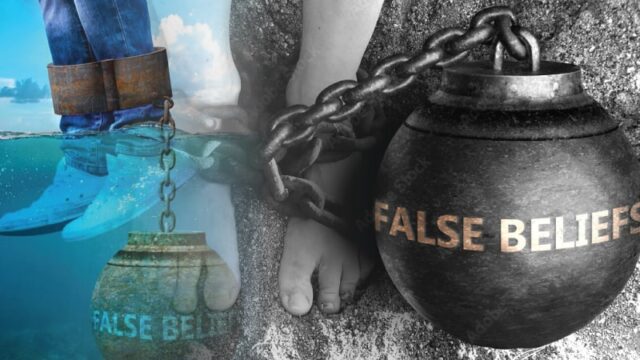Question
Every year at the time of sacrifice (Eid ul-Adha), some people start saying that instead of sacrificing, it is better to give the same amount of money to a poor person. Is this correct?
Answer
All praises belong to Allah and may the Salah and Salam be upon the one after whom there is no Prophet. As for what proceeds:
- Sacrifice is part of the Abrahamic tradition, and also the best example to be followed. Allah says:
{فَصَلِّ لِرَبِّكَ وَانْحَرْ}
“Pray to your Lord and perform the sacrifice.” (al-Kawthar:2)
It is narrated regarding the importance of the sacrifice:
( مَنْ كَانَ لَهُ سَعَةٌ، وَلَمْ يُضَحِّ، فَلَا يَقْرَبَنَّ مُصَلَّانَا )
“Whoever can afford it, but does not offer a sacrifice, let him not come near our prayer place.” (Ibn Majah: no.3123)
It was the custom of the Messenger of Allah (ﷺ) to offer sacrifices every year, and this blessed Sunnah has been continued to be practised by the Muslims from the time of the companions, Tabi’is to this day.
- Undoubtedly, charity and helping the poor and needy are among the best deeds, but it cannot be a substitute for sacrifice. Allah has made prayer obligatory on us and it is necessary to take time out five times a day and perform this duty. However if someone says that the time I have to spend for the prayer, it is better for me to spend it to help the servants of Allah, then such a person deserves the strictest punishment for abandoning the obligatory prayers. Of course, if one with performing the prayers also gives services to the servants of Allah, then this is an excellent action. In the same way, the Sunnah of sacrifice is performed by shedding the blood of animals and giving the same amount of money in charity will not suffice. Allah says:
{لَنْ يَنَالَ اللَّهَ لُحُومُهَا وَلَا دِمَاؤُهَا وَلَكِنْ يَنَالُهُ التَّقْوَى مِنْكُمْ}
“The flesh and blood of animals do not reach Allah, but your piety (in the act of following His commands and abstaining from His prohibitions) does reach Him.” (Al-Hajj: 37)
Allah Almighty is not in need of any meat or blood but the action that we have to perform with piety and sincerity is the sacrifice, that is the reason why the meat and blood of animals are mentioned.
- The Islamic law has opened up many avenues to help the poor and needy. Zakah and voluntary charities are for the purpose of compassion towards the poor. The beauty of Islam is that it contains both the commandments of sacrificing and helping the poor. Rather, the sacrifice takes place once a year, while the encouragement and guidance to help the poor is present throughout the year. If we keep in mind the command to help the poor, there will be no confusion as to whether the sacrifice should be made or whether the money should be distributed among the poor.
- The reality is that we have turned our backs on charity and the religious injunctions of taking care of the poor, needy and relatives, and now instead of correcting our shortcomings, we want to attack other acts of worship as well. We are already failing in the command of helping the poor, and poverty is common in the society, but under the same pretext we also want to destroy the Sunnah of sacrificing.
- Importantly, the system of sacrifice is so blessed that it circulates money to different sections of society, helping people who raise animals. According to an estimate, more than Rs. 4 trillion worth of cattle is traded every year, more than Rs. 3 billion is earned by fodder traders and Rs. 23 billion is earned in butcher labour along with other various forms of businesses and jobs which prosper, rather due to the large number of skins, leather is produced in large quantities in the country, which also leads to improvement in the country’s economy. This proves that the tradition of sacrifice is not only a form of worship and Sunnah, but also a great source of compassion for the poor and improvement of the national economy.
- On the other hand, the people who argue about giving money and taking care of the rights to the poor and destitute instead of Hajj, sacrifice and construction of Masajid and Madrassas, are the same ones who spend thousands on the most expensive fast food chains, who purchase new branded products, luxurious mansions and palaces and then decorate them, so that every day is wasted on expensive cars and mobiles. They remember the poor after wearing expensive jewellery, wearing the most expensive suits, spending money on weddings and walimahs, and spending millions on shameful festivals like Valentine’s Day. So do you only remember the poor on the occasion of Hajj and sacrifice? Is not money wasted on prohibitions like smoking, alcohol, gambling? However, this is where the poor and needy truly need to be remembered. The reality is that those who criticize Islamic pillars so cheaply have no sympathy for the poor and no love for the animals slaughtered, but they have hatred towards the religion of Islam which is a complete system of life, which with emphasizing the importance of the rights of Allah Almighty, also provides the best guidance for the betterment and progress of His creatures. May Allah Almighty grant us all the strength to follow the religion of Islam, Ameen!
Noble Muftis
His excellence Shaykh Abu Muhammad AbdusSattar Hammad (President of the Lajnah)
Sheikh Abul Hassan Mubashir Ahmad Rabbani (May Allah preserve him, Voice President)
His excellence Shaykh Abdul Haleem Bilal (may Allah preserve him)
His excellence Shaykh Javed Iqbal Sialkoti (may Allah preserve him)
Note: This is a translation of the original text of the Fatwa which was issued in the Urdu language.

















